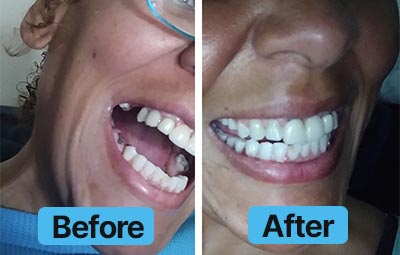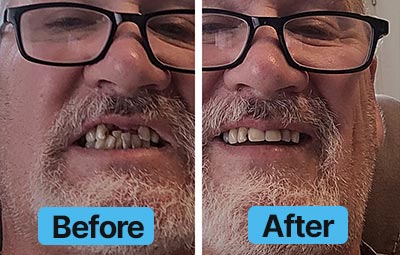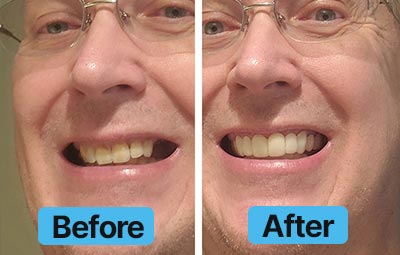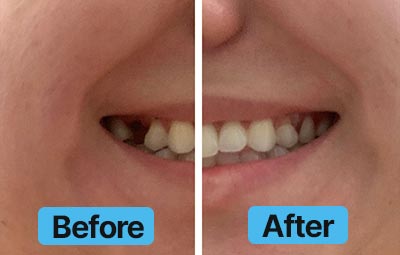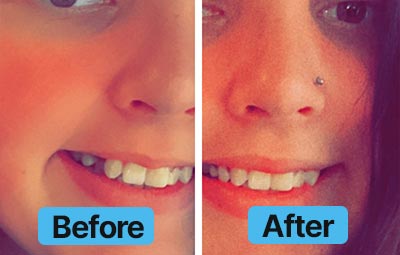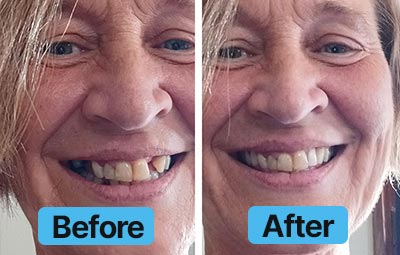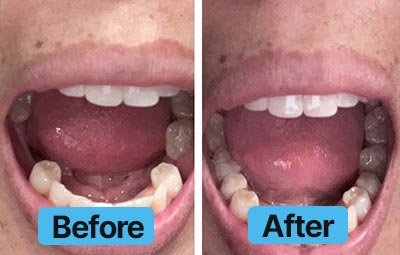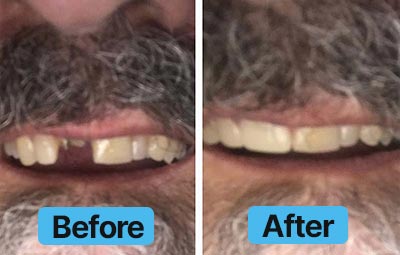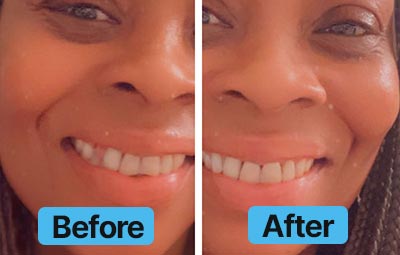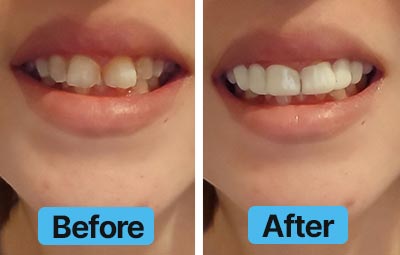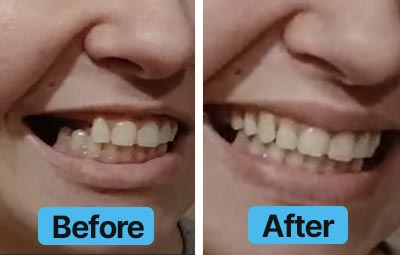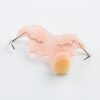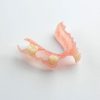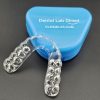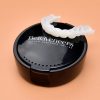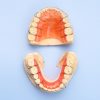For many patients experiencing tooth loss, dental implants are a practical and long-term solution, but alternatives are available. Implants are made to last a lifetime, and once they are installed, they don’t require additional care or cleaning aside from daily dental hygiene. Implants are preferred by many patients since they are attractive, unobtrusive, and sturdy.
Unfortunately, implants can be prohibitively expensive and require a long installation process. In fact, according to Dentaly.org, “teeth implants in the US cost $3,500 – $4,000 on average per tooth (including the abutment and crown).”It’s no wonder that patients are searching for affordable alternatives to replace missing teeth.
Luckily, there are several low-cost options that provide stable, attractive tooth replacement solutions. Here’s what you need to know about low-cost dental implant alternatives.
What are Dental Implants and Why are they So Popular?
Dental implants are tooth replacement solutions that are permanently installed in your mouth. Dental implants require a highly invasive initial procedure but provide life-long results once installed.
What Does the Installation Procedure Entail?
The dental implant process starts by scheduling a consultation with your dentist or prosthodontist. Once you come up with a treatment plan and timeline, you’ll set a date for your initial implant surgery. During this primary procedure, your dentist will secure a titanium screw into your jawbone. The titanium screw serves as the “root” of the new tooth. Once your mouth has healed from the initial procedure (typically after 6 months), you’ll return to have an abutment placed on the implant and casts taken for your crown. Once the crown is finished it will be attached to the abutment. When all is said and done, the implant journey might take up to a year.
Why Do People Choose Implants?
Although dental implants are expensive and invasive, there are still reasons why patients prefer this tooth replacement method.
- Dental implants are long-lasting.
- Dental implants look and feel like natural teeth.
- Dental implants allow you to eat and talk normally.
- Dental implants prevent bone loss.
What are Dental Implant Alternatives?
Despite their benefits, dental implants aren’t for everyone. Whether you need a long-term solution that works for your budget or an interim solution during your implant procedure, there are several tooth replacement methods available.
Dental Bridges
Dental bridges are a semi-permanent tooth replacement solution designed to work with existing teeth to fill the gaps in your smile. Bridges literally span (or bridge) the gap between teeth with a natural-looking crown, and attach to neighboring teeth on either side for stability.
Materials: Bridges are usually made from porcelain, ceramic, or metal. Patients can opt for either fixed or removable bridges depending on their budget and preferences.
Cost: According to Dentaly.org, “dental bridge costs are on average $500 to $1,500 for a traditional fixed crown and bridge and as much as $2,300 for a bonded bridge.” While they are still expensive, they are a more affordable alternative to implants.
Lifespan and Care: Bridges typically last between 5-10 years if well cared for. Although they are long-lasting, dental bridges are tricky to clean. Since they are fixed in place instead of removable, it might be difficult to floss in between the bridge and neighboring teeth. Some patients use special threadable dental floss to clean hard-to-reach areas. Taking care of your dental appliance is crucial for longevity and overall tooth and gum health.
Cons: Dental bridges are an unrealistic option for some patients since they rely on healthy neighboring teeth. In order to install a fixed bridge, your dentist will need to file down the neighboring teeth to attach the appliance. Since this requires a tooth-altering procedure, it isn’t a realistic option for individuals with other dental issues.
Full Dentures
If you need to replace an entire set of teeth, full dentures are an attractive and functional replacement option. Full dentures adhere to your gumline by forming a natural seal and are virtually indistinguishable from natural teeth.
Materials: Full dentures are typically made from acrylic or porcelain, and fit snugly along the gum line for a naturalistic appearance. Nowadays, dentures are highly customizable and can be specifically color-matched to blend with your gums and teeth.
Costs: Dentaly.org advises that “for a good quality but affordable custom-made set of dentures, you can expect to pay $800 – $1,500 for a full arch.”
Lifespan and Care: Full dentures can last 5 to 10 years with proper care. Although dentures are a less expensive alternative, they do require extra daily care. Dentures should be cleaned at least once a day using a denture-specific toothbrush and toothpaste. Additionally, dentures need to be soaked daily in denture solution to remove excess bacteria and maintain their functionality.
Cons: If not properly fitted, dentures might feel bulky or awkward in the mouth. Since they aren’t secured to existing teeth, they may become loose or dislodged after extended use. Full dentures don’t prevent bone loss.
Partial Dentures
Partial dentures are an excellent solution for patients who are missing one or more teeth in different areas of the mouth. Partial dentures are custom-made to fit around your natural teeth and are held in place with thin plastic or metal clasps that attach to natural teeth.
Materials: Partial dentures are made from flexible nylon thermoplastic and fill the gaps in your smile with color-matched replacement teeth. Nylon thermoplastic is a hypoallergenic material, which makes flexible partial dentures a smart option for individuals with allergies to acrylic or various metals. Partial dentures are typically a comfortable tooth replacement option, since they are thin and flexible, allowing them to curve to fit existing teeth. They are also a popular option as an interim treatment during the implant process.
Costs: Flexible partial dentures cost anywhere between $400-$700 depending on the specifications.
Lifespan and Care: Partial dentures last between 5-10 years. They should be cleaned using a denture-specific toothbrush and toothpaste, and soaked in denture solution to remove excess bacteria.
Cons: Since they are so lightweight, partial dentures aren’t as long-lasting as other alternatives and may need to be replaced more frequently. Additionally, partial dentures don’t prevent bone loss.
What Happens If I Do Nothing?
No matter what tooth replacement method you use, it’s best to seek treatment for missing teeth. Doing nothing to address missing teeth may result in soreness in surrounding teeth or gums, and may lead to increased risk of infection. Additionally, without the support of a healthy tooth, you may experience bone loss in the jaw, resulting in an altered facial shape.
Dental Implant Alternatives Through Dental Lab Direct
Nowadays, you don’t have to leave the comfort of your own home to find an effective tooth replacement solution. At Dental Lab Direct we offer high-quality dental appliances delivered directly to your door. Dental Lab Direct’s appliances are all made from FDA-approved materials and are customized to fit your unique needs.
Ordering from Dental Lab Direct is easy with our three-step ordering process. To get started, head to our website and order a tooth impression kit to be delivered to your address. Once you receive the impression kit, it should take around 10 minutes to complete when following our user-friendly instructions. Finally, send the kit back to us using the pre-paid shipping label, and you can expect your custom dental appliance in 2-3 weeks.
 60 DAY warranty on all custom-made products | 1,000+ 5 Star ★★★★★ Reviews
60 DAY warranty on all custom-made products | 1,000+ 5 Star ★★★★★ Reviews

